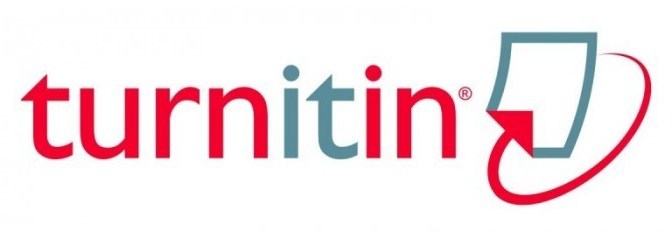PERBEDAAN PENALARAN FORMAL MAHASISWA PENDIDIKAN GURU MADRASAH IBTIDAIYAH DITINJAU DARI JENIS JURUSAN DI SEKOLAH MENENGAH ATAS
Abstract
Full Text:
PDFReferences
Ayalon, M., & Even, R. (2008). Deductive reasoning : in the eye of the beholder. Educational Study in Mathematic, (July), 235–247. https://doi.org/10.1007/s10649-008-9136-2
Balacheff, N. (1988). Aspects of Proof in Pupil’s Practice of School Mathematics. 216–235.
Balanchef, N. (2010). Bridging Knowing and Proving in Mathematics: a Didactical Perspective, In: Explanation and Proof in Mathematics (Eds) (H. Hanna, G, Jahnke, H.N, Pulte, ed.). London: Springer.
Conner, A. M., Singletary, L. M., Smith, R. C., Wagner, P. A., & Francisco, R. T. (2014). Identifying Kinds of Reasoning in Collective Argumentation. Mathematical Thinking and Learning. https://doi.org/10.1080/10986065.2014.921131
D’Augustine, C & Smith, C. . (1992). Teaching Elementary School Mathematics. Ohio University.
Dejarnette, A. F., & González, G. (2013). Building Students’ Reasoning Skills by Promoting Student-Led Discussions in an Algebra II Class. The Mathematics Educator, 23(1), 3–23.
Dumas, D., Paterson, E. G., Alexander, P., & Baggetta, P. (2016). Individual Differences in The Process of Relational Reasoning. Learning and Instruction, 42(November 2017), 141–159. https://doi.org/10.1016/j.learninstruc.2016.01.013
Gunham, B. . (2014). A Case Study on The Investigation of Reasoning Skills in Geometry. South African Journal of Education, 34(2), 01–19.
Halat, E. (2008a). In-Service Middle and High School Mathematics Teachers : Geometric Reasoning Stages and Gender. The Mathematics Educator, 18(1), 8–14.
Halat, E. (2008b). In-Service Middle and High School Mathematics Teachers : Geometric Reasoning Stages and Gender. 18(1), 8–14.
Hanna, G & Barbeau, E. (2010). Proof as Bearers of Mathematical Knowledge, In: : Explanation and Proof in Mathematics (Eds) (H. Hanna, G, Jahnke, H.N, Pulte, ed.). London: Springer.
Hanna, G. (2014). Some Pedagogical Aspects of Proof. (March 1990). https://doi.org/10.1007/BF01809605
Heinze, A & Reiss, K. (2010). Developing Argumentation and Proof Competencies in the Mathematics Classroom, In:Teaching and Learning Proof Across The Grades: A K-16 Perspective (E. J. (Eds) Stylianou, D.A., Blanton, M.L., Knuth, ed.). New York: Routledge.
Jones, K. (1997). Student Teachers ’ Conceptions of Mathematical Proof. Mathematics Education Review, 9, 21–32.
Lopes, J., Silva, E., Oliveira, C., & Martin, N. (2017). Teacher ’ s Classroom Management Behavior and Students ’ Classroom Misbehavior : A Study with 5 th through 9 th - Grade Students. 15(43), 467–490.
Milenovic, Z. M. (2011). Application Of Mann-Whitney U Test In Research Of Professional Training Of Primary School Teachers. 6, 73–79.
Moore, R. C. (2018). Making the Transition to Formal Proof. Educational Studies in Mathematics, 27(3), 249–266.
NCTM. (2000). Principles and Standards for School Mathematics. https://doi.org/10.5897/AJMCSR11.161
Nur, A. S., & Rahman, A. (2014). Pemecahan Masalah Matematika Sebagai Sarana Mengembangkan Penalaran Formal Siswa Sekolah Menengah Pertama. Sainsmat: Jurnal Ilmiah Ilmu Pengetahuan Alam, 2(1), 84-92.
Oflaz, G., Bulut, N., & Akcakin, V. (2016). Pre-Service Classroom Teachers’ Proof Schemes in Geometry: A Case Study of Three Pre-service Teachers. Eurasian Journal of Educational Research, 63(63), 133–152. https://doi.org/10.14689/ejer.2016.63.8
Prastyaningsih, A. W. (2015). Tahap Berpikir Siswa dalam Belajar Geometri pada Pokok Bahasan Dimensi Tiga Berdasarkan Tahap Berpikir Van Hiele Ditinjau dari Kecerdasan Visual-Spasial Siswa Kelas X SMA N 1 Surakarta.
Rogers.C, & Steele.K, M. D. (2016). Graduate Teaching Assistants’ Enactment of Reasoning-and-Proving Tasks in a Content Course for Elementary Teachers. Journal for Research in Mathematics Education, 47156224(4), 372–419. https://doi.org/10.5951/jresematheduc.47.4.0372
Shaughnessy, W. F. B., & Michael, J. (2018). Characterizing the van Hiele Levels of Development in Geometry. 17(1), 31–48.
Stylianides, G. J. (2008). An analytic framework of reasoning and proving. For the Learning of Mathematics, 28, 9–16.
Tall, D & Ramos, M. (2010). The Long-Term Cognitive Development of Reasoning and Proof, In: Explanation and Proof in Mathematics (Eds) (H. Hanna, G, Jahnke, H.N, Pulte, ed.). London: Springer.
Tall, D. (2008). The Transition to Formal Thinking in Mathematics. Mathematic Education Research Journal, 20(2), 5–24.
Varghese, T. (2011). Balacheff ’ s 1988 Taxonomy of Mathematical Proofs. 7(3), 181–192.
Wu, H. (2017). The Role of Euclidean Geometry in High School The Role of Euclidean Geometry in High School. 3123(September 1996). https://doi.org/10.1016/S0732-3123(96)90002-4
DOI: https://doi.org/10.35334/judikdasborneo.v3i1.1773
Refbacks
- There are currently no refbacks.
Copyright (c) 2021 musrikah musrikah
Contact Person:
A. Wilda Indra Nanna (Hp: 081253670923)
Ady Saputra (Hp: 082329693700)
Alamat Sekretariat:
Program Studi Pendidikan Guru Sekolah Dasar
Gedung Fakultas Keguruan dan Ilmu Pendidikan, Universitas Borneo Tarakan
Jl. Amal Lama No.1 Kota Tarakan, North Kalimantan (Kalimantan Utara) Indonesia
Â





